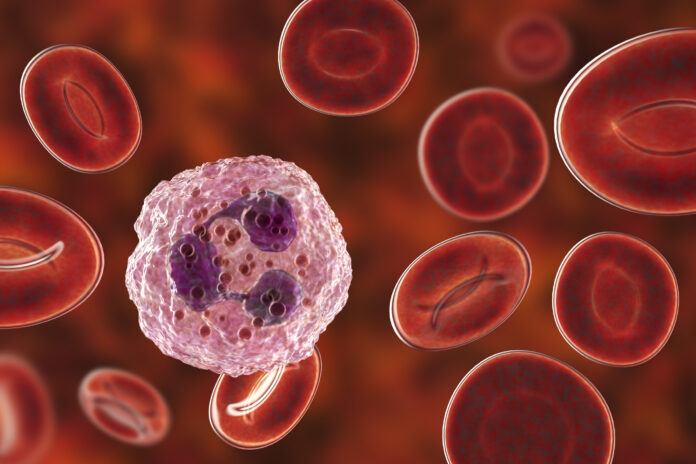
Research lead by the St. Anna Children’s Cancer Research Institute (St. Anna CCRI) in Austria, has revealed a previously unknown genetic disease, connecting disruptions of blood formation to defects in the immune system and inflammatory processes.
Four unrelated children present to the hospital with similar symptoms—severe inflammation affecting various organs such as the kidneys, intestines, and skin. All tests for conventional autoimmune diseases come back negative. What could be the reason? In order to find an answer to the question, researchers at St. Anna CCRI sequenced blood samples from the patients, revealing a common denominator.
Reporting in the New England Journal of Medicine, the scientists identified a severe defect in a gene known as dedicator of cytokinesis-11 (DOCK11), as the likely cause behind the condition in all four patients. Although normally responsible for the organization of the cytoskeleton, when faulty, the gene lead to abnormalities in both white and red blood cells.
“Such rare and previously unknown diseases provide valuable insights into the fundamental principles of blood formation and the immune system. They allow us to better understand the dysregulated processes underlying these diseases,” explained Kaan Boztug, PhD, senior author of the study and scientific director at St. Anna Children’s Cancer Research Institute in a press statement.
As one of the patients with the DOCK11 mutation suffered from a significantly reduced number of red blood cells, the researchers suspected the gene as the culprit for the red-blood cell loss known as anemia. By inactivating the gene in a zebrafish model, the scientists were able to pinpoint DOCK11 as a key player in red blood cell formation.
“Anemia often occurs with immune deficiencies, and often, a person’s own red blood cells are destroyed by autoantibodies that target their own blood cells. In healthy people, however, this does not happen. However, in our investigations, we did not find such autoantibodies,” explained Jana Block, PhD student at St. Anna CCRI and first author of the study.
Apart from contributing to the formation of red blood cells, the researchers also identified DOCK11 as having an important role in immune system regulatory processes, possibly explaining the immune deficiencies of the patients. According to the scientists, intact DOCK11 kept the activation of T-cells in check, preventing overactivation of the immune system which could lead to cell and tissue damage.
Although not all details of DOCK11´s role in the condition are completely understood, the researchers have proposed transplantation of blood-forming stem cells as a possible treatment for the disease. The scientists hope that their work will raise awareness for the mutation, providing a possible explanation for those suffering from yet unidentified immune deficiencies.
“This disease is truly severe, so we see it as our mission not only to understand the biological processes but also to develop effective therapeutic strategies based on that,” Botzug concluded in a press statement.











